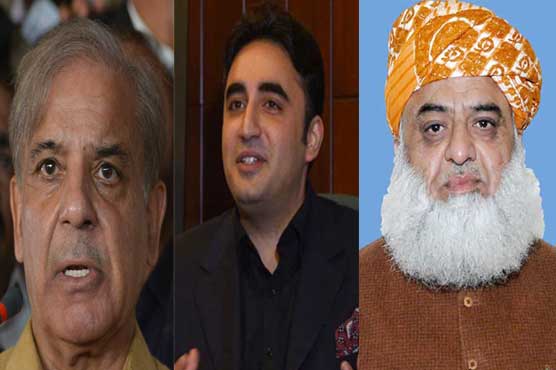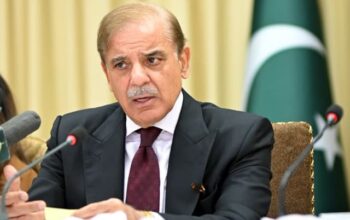By Staff Reporter
ISLAMABAD: A parliamentary committee failed to agree on a proposed constitutional package, stalled by disagreements over establishing a constitutional court, but the ruling coalition hopes to finalize a consensus document by next week, excluding former Prime Minister Imran Khan’s Pakistan Tehreek-e-Insaf party.
“We may have a consensus document ready before Monday’s meeting, leaving the PTI aside,” a ruling coalition member said.
The committee’s stalemate centres on a constitutional court, with some parties opposing its establishment.
Right-wing pro-Afghan Taliban party JUI-F leader Kamran Murtaza opposed the constitutional court, citing its limited scope. “The party was opposed to the constitutional court because it would be inappropriate to establish a separate court for only 200 cases,” Murtaza said. “The JUI-F has proposed a constitutional bench instead of a constitutional court.
Murtaza said his party has no objection to the rest of the draft amendments proposed by Pakistan Peoples Party of Bilawal Bhutto Zardari.
Minister Shehbaz Sharif’s ruling coalition government has been trying to pass a set of constitutional amendments since last month that the country’s opposition and prominent lawyers say is aimed at granting more power to the executive in making judicial appointments. The government denies the allegations and says the amendments aim to provide speedy justice to thousands of litigants and ensure the parliament’s supremacy remains intact.
The proposed amendments are expected to establish a federal constitutional court, raise the retirement age of superior judges by three years, and modify the process for the appointment of chief justice of the Supreme Court of Pakistan.
Sharif’s key coalition ally, the PPP has been spearheading negotiations with political parties and the legal fraternity after the government failed to muster the required two-thirds majority in parliament last month to get the amendments passed.
The government is pushing for constitutional amendments to alter the process of appointing the Chief Justice. The move comes as Chief Justice Qazi Faez Isa is set to retire on Oct 25, with Justice Mansoor Ali Shah next in line for the top spot. However, the government, its ally PPP, and the military establishment are reportedly against Shah’s appointment.
According to the current law, Justice Shah will automatically become the Chief Justice. But the proposed amendments aim to change the appointment procedures and appointing body.
Law Minister Azam Nazeer Tarar said the notification for the new chief justice can be issued one or two days ahead of the retirement of the top judge Justice Isa.
“The notification will be issued InshaAllah. The cut-off date [of notification] for the Ministry of Law is October 25,” Tarar said while responding to a question in his interaction with journalists in Islamabad.
“Government will issue the notification on October 24 for the venue of oath-taking ceremony [for new CJP],” he added.
He added that notification of new CJP is issued one or two days before the retirement of the incumbent in line with the tradition.
PPP Chairman Bilawal Bhutto-Zardari proposed a Federal Constitutional Court with equal representation from all federating units. “We want to end the process of appointment of judges by and for the judges. Instead, by merging the judicial and parliamentary committees, we give an equal role to Parliament, Judiciary, and legal fraternity,” Bhutto-Zardari said in a post on social media.
“The court would address all issues pertaining to fundamental rights, constitutional interpretation and federal/inter-provincial disputes.”
He invited “legitimate meaningful feedback” from the public on the PPP’s proposed amendments. “The PPP has already been reaching out separately to political parties, Bar associations, and civil society as part of our broader countrywide engagement on this important amendment.”
According to local media, the successor of Chief Justice of Isa will be picked from the three most senior judges of the Supreme Court, selected by an eight-member parliamentary committee.
The Federal Constitutional Court will consist of seven members, including the chief justice. The first chief justice of the FCC will be appointed by the president on the advice of the prime minister.
Pakistan’s government requires a two-thirds majority in both the National Assembly and Senate to pass the proposed constitutional amendments, but currently falls short, needing 13 additional votes in the 342-seat National Assembly and nine more in the 104-seat Senate.
Copyright © 2021 Independent Pakistan | All rights reserved




